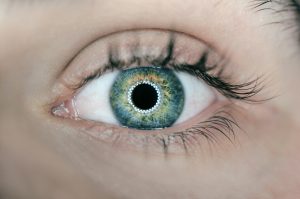Often referred to as pink eye, conjunctivitis is an inflammation of the conjunctiva. This is the transparent, thin layer that covers the white of the eye and the inner eyelid. Conjunctivitis can be caused by several different things including bacteria, viruses, irritants or allergens. To treat conjunctivitis effectively, however, it is necessary to identify the cause. If you think that you have conjunctivitis it is a good idea to have a proper eye examination so that you can get the most effective treatment possible.
Viral Conjunctivitis
This type of conjunctivitis is often linked to respiratory infections or colds and is caused by viruses such as adenovirus. The symptoms include redness, irritation, and a watery discharge.
The treatment for this type of conjunctivitis includes:
• Applying cold compresses to soothe the irritation
• Using artificial tears to keep the eyes moist
• Avoiding rubbing or touching the eyes to prevent infection spreading
Usually, this type of conjunctivitis will clear up on its own in 1-2 weeks.
Bacterial Conjunctivitis
Bacterial conjunctivitis is caused by bacteria, for example, Staphylococcus or Streptococcus. The symptoms include redness and swelling and a thick green or yellow discharge.
Treatment for bacterial conjunctivitis includes:
• Consulting a medical professional for antibiotic eye drops or an ointment
• Ensuring that the eyelids are kept clean. This is done using a warm, damp cloth to remove dry build-up
• Avoiding sharing towels as this could spread it to other people
Allergic Conjunctivitis
Caused by allergens such as pollen, dust or pet dander, this type of conjunctivitis can more commonly occur in the summer months. The symptoms include watery, itchy eyes, swelling and redness.
To treat allergic conjunctivitis, it is important to:
• Use antihistamine eye drops or an oral antihistamine
• Apply cool compresses to the area to reduce swelling
• Avoid allergens, keep windows closed during high pollen seasons and use air purifiers
Irritant Conjunctivitis
The cause of this conjunctivitis is exposure to chlorine, smoke, chemicals and other irritants. The symptoms are watery eyes, redness and discomfort.
Treatment includes:
• Rinsing the eyes with clean, lukewarm water to remove irritants
• Avoiding further exposure to said irritant
• Using artificial tears to help calm the irritation
Managing Conjunctivitis – general tips
If you suspect you have conjunctivitis or have already been diagnosed with conjunctivitis, then you should ensure that you:
• Wash hands often
• Avoid touching your eyes
• Don’t wear contact lenses until the infection has cleared
• Wash towels and pillowcases to prevent reinfection
• Don’t share things like makeup and towels with others
You should also seek medical attention if the conjunctivitis lasts for more than a week, or if you experience changes in vision, sensitivity to light or any severe pain. If you are a contact lens wearer and notice anything unusual, such as spots on the eyelids, you should see your optician immediately.
Conjunctivitis is a common condition, and you can often manage it with a combination of simple treatments and good hygiene. It is important to identify the cause so you can follow the correct treatment path. If your symptoms do not reduce, or if they get worse, then it is important to seek further medical advice.
















